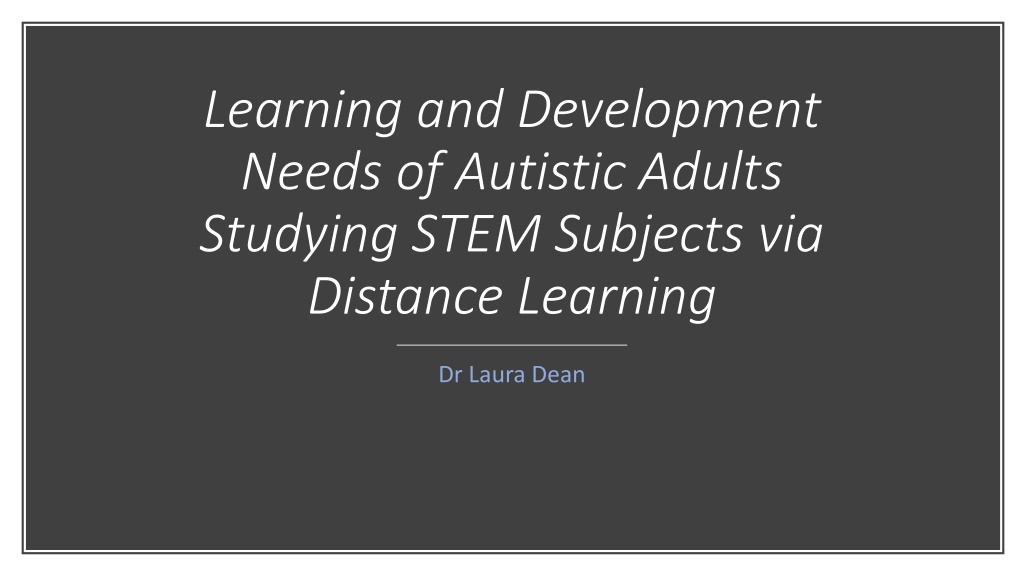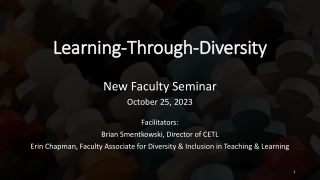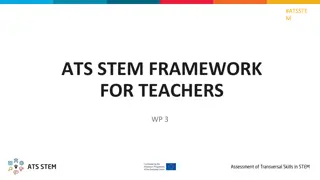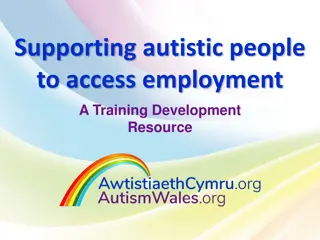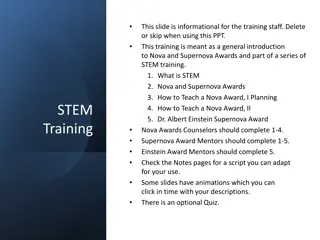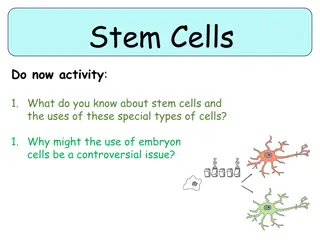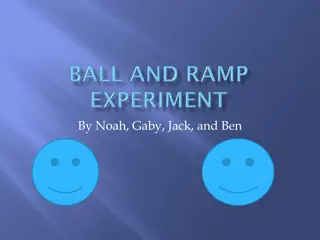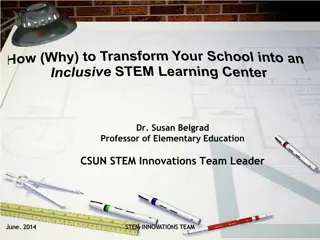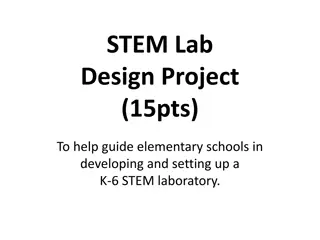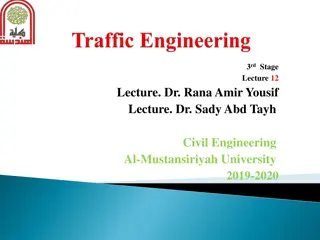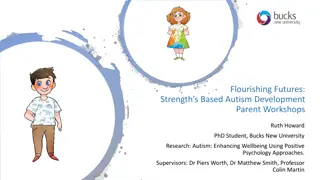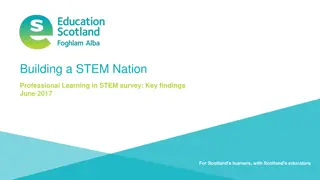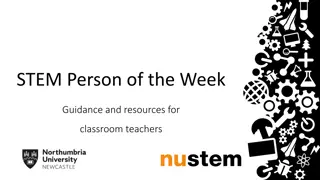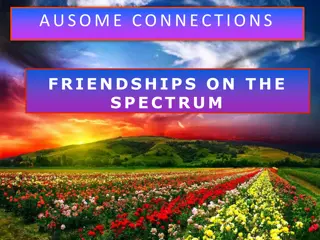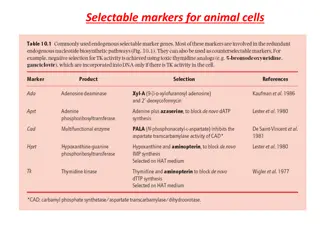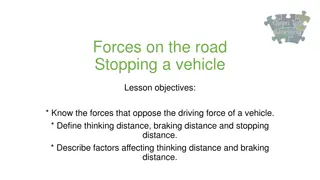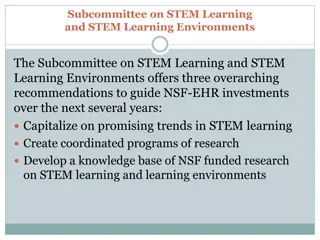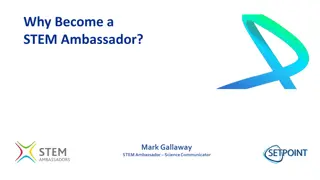Understanding the Learning and Development Needs of Autistic Adults in STEM Distance Learning
Exploring the unique challenges faced by autistic adults studying STEM subjects via distance learning. The presentation covers key aspects of autism, the autism spectrum, legal obligations, and insights from a current project involving thematic analysis of adult learners' experiences and themes arising from their struggles and successes.
Download Presentation

Please find below an Image/Link to download the presentation.
The content on the website is provided AS IS for your information and personal use only. It may not be sold, licensed, or shared on other websites without obtaining consent from the author. Download presentation by click this link. If you encounter any issues during the download, it is possible that the publisher has removed the file from their server.
E N D
Presentation Transcript
Learning and Development Needs of Autistic Adults Studying STEM Subjects via Distance Learning Dr Laura Dean
Agenda Overview of what the autistic spectrum is Introduce the current research Findings and themes Further information/resources
What is autism? Autism is a lifelong, developmental condition that affects how a person communicates with and relates to other people, and how they experience the world around them. (National Autistic Society)
The autism spectrum Very autistic Not very autistic Low High functioning functioning
Perception of others Perception of others Communication skills Communication skills Sensory filter Sensory filter Motor skills Motor skills Executive Executive function function Detail over big Detail over big picture picture Social Social Co Co- -occurrence with depression occurrence with depression / OCD / anxiety / OCD / anxiety understanding understanding
The Equality Act 2010 (or the Disability Discrimination Act 1995 in Northern Ireland) gives provision that autistic people must not be treated less favourably because of their disability and 'reasonable adjustments must be made Legal Obligations Autism Act 2009 requires local authorities to assess and support adults with autism
Current Project Semi-structured interviews with 14 adult learners on level 1 STEM modules Experiences of starting studying Issues with studying Things that worked well Thematic Analysis of interview transcripts
Themes: Second chance study Conforming to stereotypes Grateful to be heard Understanding rules. Struggles with online materials Fear of face to face
Themes: Conforming to stereotypes So I just I picked a bad subject I suppose, and I couldn't really cope with it. This is before I knew I was autistic. I mean, I'm planning to do a a degree in mathematics an that's always what I've been most comfortable with and [it] fits autism
Themes: Understanding rules. The way things are often wrote, it's wrote in a way that expects students to 'read between the lines' and make up gaps in instructions which is fine for neurotypical people as they do this automatically all the time but autistic people can't do this (asking interviewer) Can you ring? (later asking interviewer) How many times can you email?
Themes: Fear of face to face So it was maybe a 20-30 minute bus ride and mean public transport aren't always the greatest. Like I can do it, but it s hard from the start So I had my assessment and stuff and then like they granted me like taxi fares so I can get there without public transport [but I] was already scared sensory issues were a big thing, that and stress really contributed to persistent migraines
Sensory processing - stress Atypical reactions in all five sensory modalities as well as kinaesthetic and proprioceptive sensation. Some of the common sensory issues include hyper-reactivity to stimuli including bright lights, loud noises, and strong odours. (Harrison, J. and Hare, D. (2004) Assessment of sensory abnormalities in people with autistic spectrum disorders. Journal of Autism and Developmental Disorders)
Further information https://www.open.edu/openlearn/science-maths-technology/understanding- autism/content-section-overview?active-tab=description-tab
Group of autistic and non- Pro Autism autistic people Provide free training and workshops for employers to make their recruitment processes more autism-inclusive. Workshops include: Information on how autistic people might perceive the world and interact with others Active learning around job adverts, interview questions, feedback and on-boarding processes.
